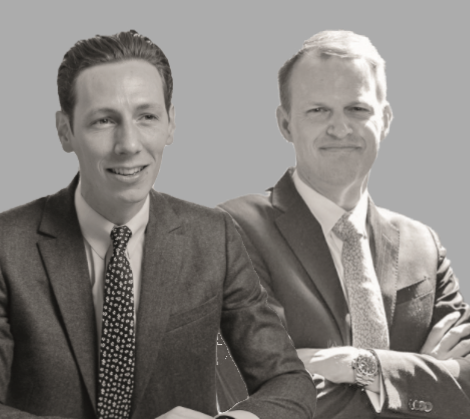Q&A: William Barrett and Jean Philippe Boige, Reach Capital

- Reach Capital’s co-founders discuss the fundraising climate, the changing role of placement agents and if there is a place for new private equity managers.
What did the fundraising market look like pre-Covid-19?
William Barrett: Pre-covid we were at an all time high, with huge allocations from LPs. I think it was the peak of the market in general for alternatives. We were also seeing great improvements on big private market platforms, in Europe including Ardian, IdInvest, Eurazeo and Tikehau. These managers were launching new strategies and gathering a lot of new capital. A lot of new groups were also launching and spinning off. It was a super exciting market!
Jean Phillippe Boige: For the 5th year in a row in 2019, we were on track to surpass $500bn in funds raised. LP appetite for PE was strong, including for new and niche managers. But, we also started to see a flight to quality in the type of assets GPs were buying, expecting some sort of a downturn. On the LP side, the same selection bias was observed with a run on brand names.
What is the market like now? Has there been a significant change or is fundraising activity continuing?
Boige: Roughly two thirds of LPs we are now talking to, who are mostly based in North America and Europe, have already marked their 2020 allocations. Now, it’s very likely that we will only see activity among LPs who started their due diligence (DD) pre-Covid, and there will probably be a priority for re-ups as DD will be much easier.
Barrett: I agree, the main change is that for new teams that are building their LP networks now, it’s going to be a bit tough. For more established GPs, the assessment of the existing LP base will require more insights. In this context of rising doubts about LPs’ deployment capacity, advisors will be even more needed than before.
Has the pandemic changed the role of placement agents and how you navigate between GPs and LPs?
Barrett: Yes, both LPs and GPs are coming to us a lot more. We had to rework fundraising timetables with our clients. Then, we advised them a lot on their communication to their LPs, their prospects and what was happening in the portfolio.
Boige: What was striking to me was that we got several calls from LPs who were interested in receiving our weekly barometer, in order to understand what is happening among GPs and LPs globally. We are not worried about the appetite for the asset class and the role of placement agents in this economy is certainly going to be reinforced.
How has Covid-19 impacted LP/GP communications?
Boige: I’m quite impressed with how both LPs and GPs have adapted to this current situation in terms of communication. I wouldn’t say that the tools are changing, but I would say that now that we have to communicate remotely, the nature of the message and the way it is processed is probably going to highlight the winners and the losers in the industry. The existing tools have created a dialogue between GPs and LPs that is probably more transparent.
In what ways has LPs' due diligence of GPs changed since the outbreak of the pandemic?
Barrett: The first thing is that they have less time pressure from GPs to close rapidly and are quite happy with having more time to do some deskwork. Something that was already emerging in 2019 is that LPs were looking to understand GPs’ track record during downturns or crises. Now it’s becoming LPs’ first question. GPs that have over 10-15 years’ experience are great value now.
In general, super experienced teams will be a preferred choice for LPs.
If there are any firms brave enough to launch a fund now, do they stand a chance?
Boige: My quick answer is yes, if they are targeting a niche that is not already exploited by an existing GP. They would need to have at least some of these features: some time, a several cycles track record, a specific niche and either some experience in fundraising or a single bedrock LP. If you’re looking to build new relationships now and expect to cash in these leads over the next 6-9 months, we think that will be impossible. Or you have to be extraordinarily well prepped in pre-marketing. Therefore the role of the agent becomes more important.
What will be maintained when it comes to fundraising postcovid?
Barrett: Personally I hope that we will travel a bit less. Before Covid, even if you had a day with a couple of meetings in Northern Europe, you would travel around for these or cross the Atlantic for a roadshow. I hope going forward that we will do the first round of meetings virtually and if the LP wants to do a deeper dive into the GP, then we will travel. I hope most people have discovered that you can at least do prep work over a vc and 80% of DD can be done remotely.
The big question is what will happen to events. A lot of GPs depended on these to meet LPs and to create new contacts. So, if you want to meet new LPs and you take out the opportunities that SuperReturn, SuperInvestor and other big events provide, how will you do this? My quick answer is placement agents, but how will you regain or build relationships that you’d meet in the corridor or at a drinks reception of these events. I’m not sure when we’ll be able to do that again.
Categories: Insights Expert Commentaries People Profiles
This content is free for all our visitors.
Would you like to check out the rest of our fantastic offering? Get in touch with us to discuss our trial and subscription options.
Contact us